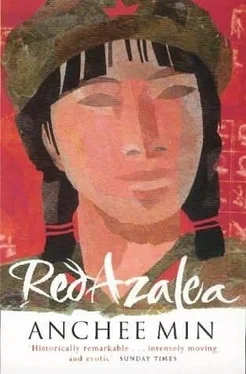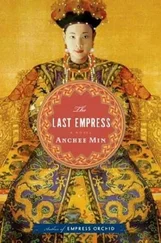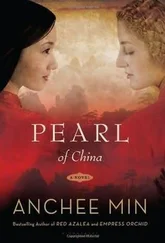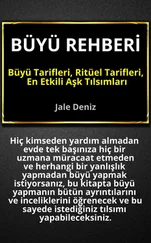One of the lights was being moved to the plot where we had worked; millions of mosquitoes swarmed into its ray. Lu shouted for attention. She wanted to talk about the quality of the day’s work. She passed the loudspeaker to Yan. Yan was coated with mud. Only her eyes were sparkling. She ordered for the light to be moved to illuminate a particular spot where dozens of rice shoots were floating on the water. The work was poorly done all the way to the edge of the field. Someone did a nice job here, Yan said sarcastically. The shoots will all be dead before daybreak. She wanted us to look at the dying shoots. To look hard. She said the shoots were her babies.
The soldiers began to survey the fields nervously. The word broke out that the section responsible for the careless planting was platoon number four-our territory. I knew it was the area I had worked as I tried to keep up with Yan.
Lu ordered the person responsible to step out of rank and receive public criticism. Orchid sensed my fear and grabbed my hand tightly. Lu said, No one leaves until the mistake is admitted.
As I gathered my courage and was about to step out, Yan suddenly said that she preferred to let the comrade correct his own mistake.
The fields had become quiet in the moonlight. The drizzle had stopped and the air was still. The insects resumed their nightclub singing. The fragrance of the plants wafted over me. The moon moved out of the clouds. I planted my feet in the mud and began to redo the work. My feet were swelling. I sang a Mao quotation song to fight off sleep.
I’ve made up my mind
Not to fear death.
Overcoming all the difficulties,
I strive for victory.
I’ve made up my mind…
The sky was piled with orange clouds when I awoke. The sun had yet to rise. I lay in the mud, joints sore, knowing I hadn’t finished the work. The thought of having to resume my work brought pain to my back. Leeches parked on my legs. I had no energy to pat them off. They sucked my blood until they were satisfied and fell off. I was in despair. Yet I knew there was no way to escape. I had to finish my work. I had no guts to face the Party’s abandonment. I feared being disgraced.
I forced myself to sit up. I looked around and thought I was dreaming. My work had been done. It had been done all the way to the edges. I looked toward the sun. There was someone. Someone about thirty yards away, pacing the field.
My tears welled up, because I saw Yan. She was pacing in the sun. She was the sun. My cold heart warmed.
I stood up and walked toward her.
She turned around, hearing me approach.
I stopped in front of her. I could not say anything.
She nodded at me, then bent down to finish the last few patches. She washed her hands in the irrigation channel. She saw the leeches on my legs and told me to pat them off. She said that Orchid came to her last night and told her everything. She said she was pleased that I stayed all night in the fields. She said I did what I was supposed to do. She unknotted her braids, bent and washed them in the channel. She squeezed the water from her hair and flung her head. She combed her hair with her fingers and braided it. She said when she had found me I looked like a big turtle. She thought I had fainted or something. She paused and said that I made her feel guilty, because I could have caught a disease like arthritis. It would be the Party’s loss if I did.
I rubbed my eyes, trying to look fresh.
She looked me in the eye, a thread of a smile on her face. She said she guessed that I was strong-willed. She said she liked strong-willed people. She looked at the sun for a while. She said, I want you to be the leader of platoon number four. She would arrange to move me to her room so that I could discuss problems with the company heads. She then walked quickly back toward the barracks.
I stood in the sunshine, feeling, feeling the rising of a hope.
I moved in with Yan and six other platoon heads. Yan and I shared a bunk bed. I occupied the top. The decoration in Yan’s net was a display of Mao buttons, pinned on red-colored cloth, about a thousand different kinds of them, from different historical stages. I was impressed. Yan put them up during the day and took them down at night. The room was the same size as the room I had lived in before. It served as a bedroom, conference room and makeshift dining room. It was also a battlefront. Although Yan was officially in charge and Lu was her deputy, Lu wanted much more. She wanted Yan’s position. She was obsessed. She called meetings without agendas. We had to obey her. We had to sit through her meetings in our drowsiness. She liked to see people obey her. To feel powerful was a drug she needed. Only in meetings could she feel that she was as in control of other people’s lives as she was with her own. She made warnings and threats at the meetings. She enjoyed our fear. She aimed at all our possible mistakes. She waited, had been waiting, for a precise moment, to catch a mistake and beat it into submission. She had been trying to catch Yan. Her incorrectness. I could tell that she would have pushed Yan off a cliff if she had a chance.
Lu’s full name was Ice Lu. She was the daughter of a revolutionary martyr. Her father was killed by the Nationalists in Taiwan. He was murdered when carrying out a secret assignment. Her mother suffered this loss to her death. She died three days after giving birth. It was a terrible winter. Strong wind, like scissors, cut through the skin. She named her baby Ice. Ice was raised under the Party’s special care. She grew up in an orphanage funded by the Party leaders. Like Yan, she was also a founder of the Red Guards. She had gone to visit Mao’s hometown in Hunan, where she had eaten leaves from the same tree Mao had eaten when besieged and pinned down in the valley by the Nationalists some thirty years ago.
Lu showed me a skull she had discovered in the backyard of a house in Hunan. She said it was a Red Army martyr’s skull. She pointed to a hole on the forehead of the skull and told me that it was a bullet hole. She fondled the skull with her fingers, going in and out of the eyeholes, touching its jaws. The strange expression on her face caught my breath. She told me that an old village lady buried the martyr secretly. Twenty years later the skull had risen above the soil. The old lady dug it out and gave it to Lu when she learned that her father had been a martyr too. Lu often thought it could have been her own father’s skull.
I stared at the skull, trying to comprehend its attractiveness to Lu. Maybe the threatening spirit? Maybe the coldness that only death could carry? Lu had a look that matched her name. Her look was chilly. Her enthusiasm did not feel warm. She spoke slowly, pronouncing each syllable clearly. She had a long face, the shape of a peanut. Her expression was determined and judgmental. Her features were located evenly on her face. Slanting eyes, icy, like a painted ancient beauty. But her beauty was ruined by her forever-correctness. Her half-moon-shaped eyes were no longer warm and sweet to the soldiers. Our respect for her was that of mice for a cat.
Lu liked action. She did not know hesitation. She attacked and invaded. It was her style to catch and chop. Stand by, aim and shoot, as she always like to say. But that did not impress me. On the contrary, it distanced me. She had a fixed mind. A mind full of dead thoughts. She observed me. In coldness. In suspicion. It started the moment I moved in. Her smile carried warnings. She gave me a copy of her Mao study notes. Her handwriting was extremely square. I wished my calligraphy was like hers, but her writing bored me. Her mind was a propaganda machine. It had no engine of its own. I told her so when she asked me for an opinion. I did not say her mind was a propaganda machine, but I suggested she oil the engine of her mind. She said she liked my frankness. She said people had been telling her lies. She was lied to by a bunch of hypocrites. She hated hypocrites. She said the country was filled with hypocrites. The Party in many respects was run by hypocrites. She said it was her duty to fight against hypocrisy. She would spend the rest of her life correcting the incorrect. She asked me to join the battle. I did not fully understand what she meant, but I did not say so. I said, Yes, of course. Hypocrites were bad in any case. She asked, Do you smell hypocrites in our room?
Читать дальше












